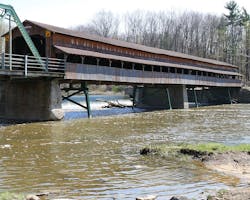Industrial Utilities Seeking Relaxed Regulations from Ohio River’s Water Quality Commission
Over two dozen coal-fueled plants that are placed along the Ohio River are hoping to dismantle certain powers currently held by the Ohio River Water Quality Commission. The facilities, which include electric and other industrial utilities, claim that the regional commission should cease its role in placing restrictions on toxic wastewater dumping on the grounds that there already exists too much bureaucracy surrounding the issue.
Instead, the industrial utilities lobbying for this change wish for the commission to commit to research, leaving regulations to the mercy of individual states, as the commission spans across eight states and has historically set more stringent standards for water quality than surrounding areas.
The river has been in the process of cleanup efforts for decades, but if this new request is approved by the commission, further progress toward cleanup may be hindered as the industries would be subject to more relaxed discharge laws. Environmental groups also fear this will only prolong the use of coal.
The Ohio River has also bolstered economic growth opportunities for metropolises along its 981-mile run, including recreation and tourism.
“The Ohio River is the lifeline for the region, supplying us with drinking water and other vital assets,” said Sean Borst, medical office manager in Ashland, Ken. “Having an independent committee that’s sole purpose is to monitor, study and help regulate pollution standards is extremely important. It is paramount to keep the river clean and viable for future generations.”
While many coal-based plants have retired in past years, 26 remain along the Ohio River, averaging one every 38 miles. Coal plants remain the largest contributors of toxic pollution to U.S. waters, discharging substances such as mercury, arsenic, lead and others into various water bodies, which can lead to adverse health effects among those who use such waters as their supply.
A preliminary vote will be held on June 7, 2018. As it stands, a majority of commissioners are in favor of the plan. If approved, it will be open to further public webinars and comment before being put to a final vote.
